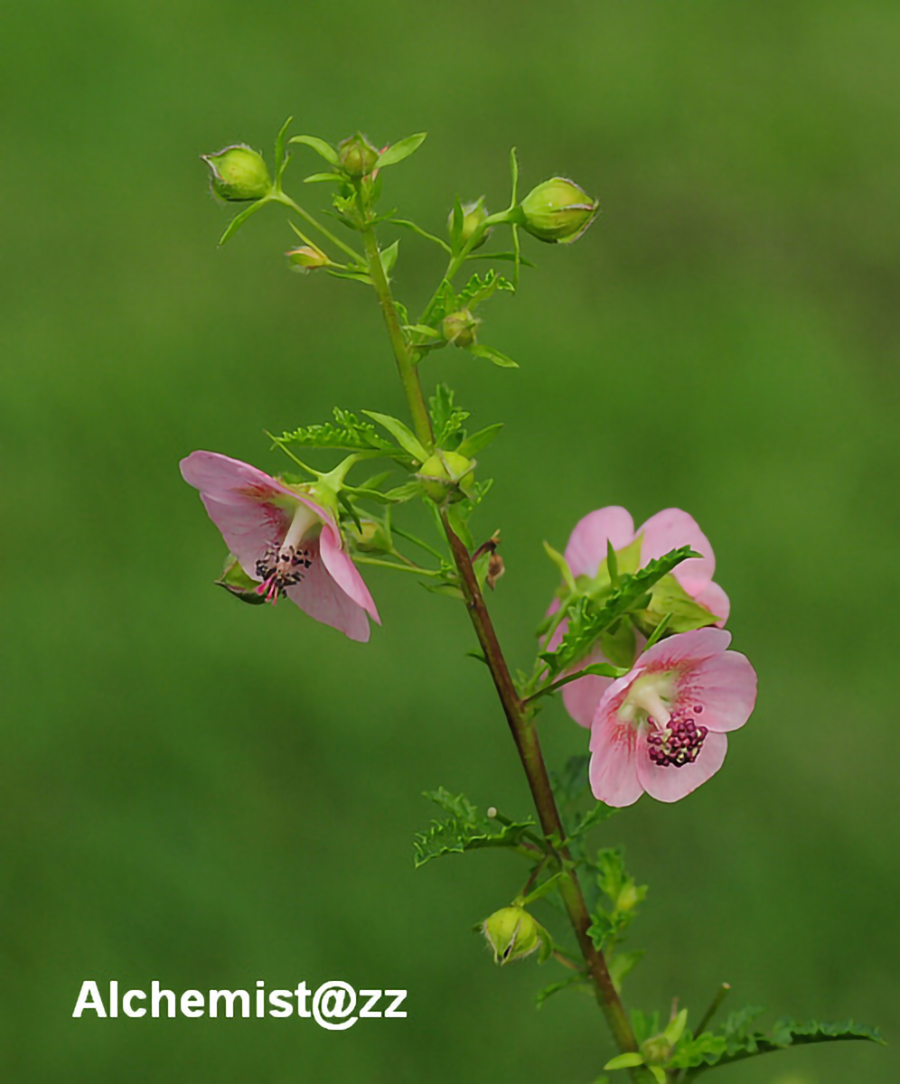南非葵 Anisodontea capensis

- Scientific Name: Anisodontea capensis (L.) D.M.Bates
- Ref: Gentes Herbarum 10:327. 1969
- Synonyms:
- Althaea africana (Mill.) Borbás
- Malva balsamica Jacq.
- M. capensis L.
- M. debilis Salisb.
- M. dilleniana Eckl. & Zeyh.
- M. divaricata Andrews
- M. odorata Westc.
- M. virgata Murray
- M. viscosa Salisb.
- Malvastrum capense (L.) Garcke
- M. divaricatum (Andrews) Garcke
- M. virgatum A.Gray & Harv.
- Malveopsis capensis (L.) Kuntze
- M. divaricata (Andrews) Kuntze
- M. virgata (A.Gray & Harv.) Kuntze
- English Common Name: Cape African-queen, Cape mallow
- Chinese Common Name: 南非葵 Nánfēi kuí
- Japanese Common Name: サクラアオイ [桜葵] sakuraaoi
- Family: Malvaceae
- Genus: Anisodontea
- Distribution: SOUTHERN AFRICA: South Africa [Eastern Cape, Northern Cape, Western Cape], also cult.
Habit: Plant 0.5--2 m, generally < 1 m wide, evergreen. Stem: erect, stellate-hairy, bristly. Leaf: blade generally 2--6 cm, rough-veined, truncate, ovate, 3--lobed, serrate to crenate-dentate, tip 3-toothed. Flower: 10--15 mm, 10 mm diam; petals not overlapped, pale pink with dark veins toward base; filaments pink, anthers black; styles red. Fruit: 5--6 mm diam, +- yellow-hairy; segments 9--12(16), 1-seeded, upper chamber empty. Chromosomes: 2n=44. Ecology: Disturbed, generally urban places; Elevation: especially < 100 m. Flowering Time: Jun--Aug Note: Increasingly cultivated as ornamental; occasional weed in gardens, urban places, not fully naturalized, not qualifying as waif. Cult plants may be hybrids; plants with 2-seeded fruit segments may be Anisodontea elegans (Cav.) D.M. Bates, Anisodontea julii (DC.) D.M. Bates, or Anisodontea ×hypomadara (Sprague) D.M. Bates. (Jepson eFlora)